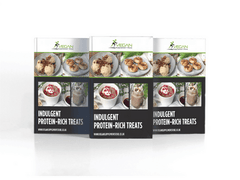Is Your Teen Considering Creatine? The Essential Safety Checklist and Expert Advice

If your teenager has mentioned taking creatine, you're not alone in feeling uncertain. Many parents ask "is creatine safe for teenagers?" as this popular supplement has become incredibly common among young athletes, with research showing approximately 35 percent of middle and high school boys using it to boost their sports performance. As a parent, you want to support your teen's goals whilst keeping them safe. This article cuts through the confusion, explaining what the science actually says about teenage creatine use and providing you with a straightforward safety checklist to make informed decisions.
What Is Creatine Supplementation and Why Are Teen Athletes Interested?
Creatine is a natural substance your body produces from amino acids, with about 95 percent stored in skeletal muscles. It's also found in red meat and seafood. The supplement version, usually creatine monohydrate powder or capsules, helps muscles produce energy faster during high-intensity exercise. Teenagers and youth are drawn to this nutritional supplement because of promises of improved athletic performance and muscle growth, combined with intense peer pressure, social media influence from fitness personalities, and the desire to gain competitive advantage. When everyone in the changing room talks about supplements, your teen feels left out if they're not using them. Body image concerns drive many kids to seek quick solutions, and the promise sounds simple: take a supplement, train hard, get results.
The Scientific Consensus on Creatine Safety for Adolescents

However, here's where things get complicated: the wealth of research on adults doesn't extend to children and adolescents. When researchers specifically examine adolescent creatine use, they find very few studies, most involving small groups of athletes for short periods. This gap doesn't mean creatine is dangerous for teenagers, but it means we lack comprehensive data on how it affects developing bodies. Medical opinions vary, which can feel frustrating when seeking clear guidance. The American Academy of Pediatrics recommends against creatine use under age 18, whilst the International Society of Sports Nutrition suggests it may be acceptable for younger athletic populations under specific conditions including serious competitive training, proper supervision, good nutrition, and professional medical guidance.
Potential Benefits and Realistic Expectations
When researchers study high school athletes using creatine, they sometimes see modest performance improvements in sprint speed and sport-specific activities. These benefits appear most relevant for sports involving repeated high-intensity bursts like rugby, football, or swimming sprints. However, the improvements are often small, with research in adults showing performance increases of around three to five percent, which experts consider modest compared to the natural growth and development during teenage years. Your teen needs realistic expectations because creatine won't transform them into a star athlete overnight. Individual responses vary significantly among creatine users, with some people responding well whilst others see minimal effects. Results require consistent use over time, and even then, muscle mass gains come from training harder, not directly from the supplement. Creatine cannot compensate for poor sleep, inadequate nutrition, or insufficient training, which matter far more than any supplement.
Health Risks, Side Effects, and the Contamination Problem
The most common side effect of creatine is weight gain from water retention in muscle cells, which teenagers often mistake for muscle growth. Some people experience digestive discomfort when taking large doses, particularly during loading phases. The biggest concern with teenage creatine use is understanding the effects of creatine supplementation on developing bodies, as adolescence is a critical period of physical development and we lack comprehensive data on how supplementation might affect these processes. Kidney concerns warrant attention, particularly for teenagers with underlying kidney issues, which is why medical screening matters before starting any supplement.
However, the most serious issue deserves careful attention: dietary supplements aren't regulated like prescription medicines. Studies have found that up to one in ten sports supplements contain banned or unlisted substances, with products sometimes contaminated with steroids, stimulants, or prescription medications. These hidden ingredients pose real health risks, with teenagers experiencing serious problems including high blood pressure, liver damage, and stroke from contaminated supplements. For young athletes in organized sports, contamination creates another risk as they can fail drug tests from taking contaminated supplements. For consumers interested in purity and sourcing, it is useful to know how creatine is made to ensure the product meets quality standards.
Your Essential Safety Checklist and Alternatives
Before considering creatine, assess whether it's even appropriate for your teen's situation. They should be at least 16 to 18 years old, involved in serious supervised competitive training, already eating a well-balanced diet, getting eight to ten hours of sleep nightly, and following an age-appropriate training program. Most importantly, book an appointment with your teen's GP or paediatrician before purchasing any creatine product, as the doctor needs to review complete medical history and rule out conditions like kidney problems, liver issues, or diabetes that make creatine inappropriate. Consider consulting a registered sports dietitian as well.
If you proceed after medical consultation, product selection becomes crucial: always choose creatine monohydrate with third-party testing certifications like Informed Sport or NSF Certified for Sport. These organizations test products for banned substances and verify that ingredients match labels. Avoid products with additional ingredients like caffeine or stimulants, and stick to pure creatine monohydrate from reputable retailers. For usage, a recommended daily dose typically ranges from three to five grams for adults, with conservative approaches for teenagers suggesting starting at the lower end. Avoid loading phases, ensure adequate hydration, keep a usage log, and schedule regular check-ins with your teen's doctor every few months.
Proper nutrition provides a foundation no supplement can replace. Your teen needs adequate protein and other essential nutrients throughout the day from lean meats, fish, eggs, dairy, legumes, or plant-based alternatives, with teenagers requiring roughly 1.2 to 2 grams of protein per kilogram of body weight daily depending on training intensity. Carbohydrates fuel intense training and workouts, so active teenagers need substantial carbohydrate intake from whole grains, fruits, vegetables, and starchy foods. Beyond nutrition, age-appropriate training programs matter more than any supplement, with teenagers needing properly structured programs that progress gradually and include adequate rest days. Sleep deserves top priority, as eight to ten hours nightly isn't excessive for teenagers. Long-term athletic development takes years, and helping your teen understand that elite athletes build their abilities over decades, not months, protects against frustration and risky shortcuts.
Conclusion
Start by listening to your teen explain why they're interested in creatine, acknowledging the pressures they face from intense competition and peer comparison whilst expressing your support for their athletic goals. Help them evaluate information sources, as not everything on social media is reliable, with fitness influencers often promoting products they're paid to advertise. Watch for warning signs including extreme performance claims on products, lack of clear ingredient information, missing third-party testing certification, secretive behaviour about supplement use, obsessive focus on appearance, or taking more than recommended doses. Remember that creatine is well-studied in adults but research in teenagers remains limited.
Before your teen considers creatine, ensure they've mastered proper nutrition, adequate sleep, and appropriate training, which will serve them far better than any supplement. If you do decide to proceed, follow the safety checklist carefully with professional consultation, third-party tested products, recommended dosages, and regular health monitoring.
For plant-based athletes seeking high-quality, third-party tested supplements, Vegan Supplement Store offers a range of products including vegan creatine monohydrate designed with both performance and safety in mind for those who choose to supplement under appropriate professional guidance. Explore our certified vegan supplements and make an informed choice for your teen's athletic journey
Ready to find a certified, high-quality supplement? Explore our certified vegan supplements in UK, or if you have any questions about product safety and suitability, contact our team for personalised support and expert guidance.









